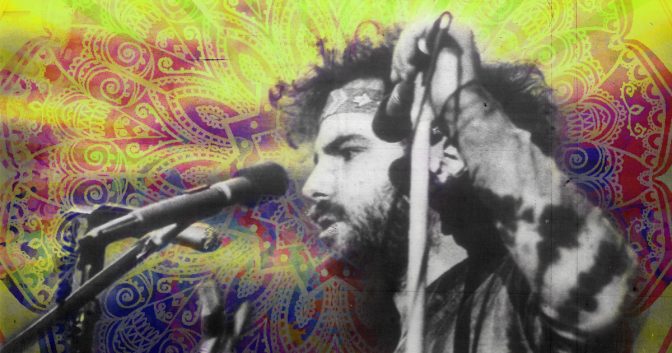From Yippie to Yuppie: ’60s Activist Jerry Rubin

The Youth International Party (Yippies) went beyond the simple peace-and-love mentality of the hippies of the ’60s and ’70s. They were politicized hippies and psychedelicized activists who took their protests against the Vietnam war and America’s repressive status quo to the streets, often theatrically.
Jerry Rubin was one of them, and along with rabble-rousing peers like Abbie Hoffman, Paul Krassner and Stew Albert, they stirred up dissent on a national scale. While Hoffman was the subject of Steal This Movie in 2000, little has been written about his Yippie running partner until now, thanks to Pat Thomas’ exhaustive Did It! (Fantagraphics Books).
«Jerry Rubin and Abbie Hoffman manipulated the media with the ease of carnival barkers at a county fair.»
Designed as a scrapbook-style homage to the structure of Rubin’s 1970 classic Do It! and Hoffman’s Steal This Book, Did It! balances the scales of history, giving Rubin his due as a flawed but vital member of the counterculture. Among his Yippie highlights were throwing dollar bills to a bevy of greedy brokers at the New York Stock Exchange, nominating a pig for President, encircling and pretending to levitate the Pentagon and turning the incredibly undemocratic proceedings of the infamous Chicago 8 trial in 1969-70, in which he was one of the defendants, into five months of political theater and chaos. Back then, Rubin and Hoffman manipulated the media with the ease of carnival barkers at a county fair.
EXCERPT: “Jerry Rubin lived the mythological American dream: be whoever you want to be. In Jerry’s case, he succeeded in both of our nation’s most popular dream-myths: Revolutionary-Patriot and Entrepreneur-Capitalist. ‘Do it!’ he cried, and he Did it!—like no one else had done before or since.”
Thomas traces Rubin’s complex personality as he made his way through the late 20th century, dealing with outsized individuals like Hoffman as well as Timothy Leary, John Lennon and Yoko Ono and Bob Dylan. He sets the record a little straighter by pointing out the inherent misogyny of the period in interviews with many of the women who were integral to the group activism that made Rubin and Hoffman stars.
However, Rubin’s reinvention of himself in the late ’70s as a New Age-yuppie networking guru was viewed as antithetical to the Yippie ideals and forever devalued his important contributions to the counterculture. Sadly, he died in 1994 of a heart attack after being hit by a car.
Related Articles
Gold Dust Woman: A Biography of Stevie Nicks
RIP: California MMJ Activist Dennis Peron
If you enjoyed this Freedom Leaf article, subscribe to the magazine today!
